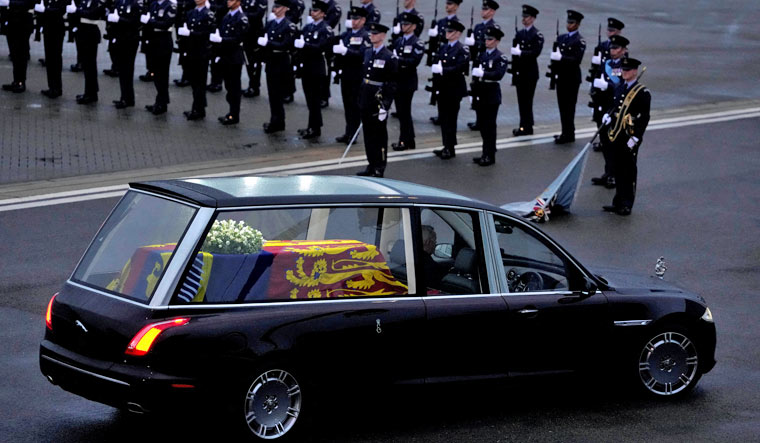No one quite does symbolism and ceremony like the British, and so it is little surprise that every tiny bit of Queen Elizabeth II’s funeral is being watched, interpreted and shared on social media. Naturally, car aficionados have been paying close attention to the hearse (hearses, rather).
The Queen's last journey from Balmoral Castle to the Scottish capital of Edinburgh was on September 13—a six-hour, 280km journey passing through Aberdeen, Dundee and Perth. In Aberdeen, farmers lined up tractors along the road in tribute to the outdoorsy monarch who loved farms, horses and livestock.
The vehicle that received the most attention was the hearse, which was surprisingly not British. Drive.com.au reported that the hearse was built by German coach-builder Binz on a Mercedes E-Class platform. The model was identified as a Binz H4. Experts explained online that Binz uses the same supplier who produces panels for Mercedes, resulting in the hearse’s superior finish.
The surprise over the non-British Binz was heightened because Prince Philip had chosen a customised Land Rover Defender for his last journey and the Queen Mother a Jaguar hearse.
Those concerns were allayed when the state hearse arrived at RAF Northolt, near London, to meet the Royal Air Force’s Boeing C-17 Globemaster which carried the royal casket from Edinburgh. The state hearse was designed by The Royal Household and Jaguar Land Rover, with the Queen personally clearing the plans. The queen’s flight into London made more news as it became the most tracked flight in history.
The state hearse is a Jaguar XJ customised by Wilcox Limousines and finished in Royal Claret, the official colour of Royal and State vehicles. Among the many personal touches to the vehicle is the hood ornament—a bespoke silver-plated bronze statue of St George slaying a dragon. The ornament is a replica of the one used on the Queen's official Bentley. In addition to the hood ornament, the hearse displays Jaguar Land Rover’s ‘Grinner’ badge on the grille and the ‘Leaper’ on the back panel.
Another personal element on the hearse is the Queen’s personal royal cypher on the sides. This could be the last official appearance of the Queen’s cypher as King Charles III unveiled his own after he was proclaimed monarch.
The state hearse has never been seen before in public as this is its first ever official appearance. To give mourners a clear view, the hearse features wide windows on the sides and back, a clear glass roof and three bright spotlights inside to illuminate the raised casket.
The Royal Household announced that the Queen’s journey from Buckingham Palace to Westminster Hall—where she will lie in state—will be on a gun carriage of The King’s Troop Royal Horse Artillery.





